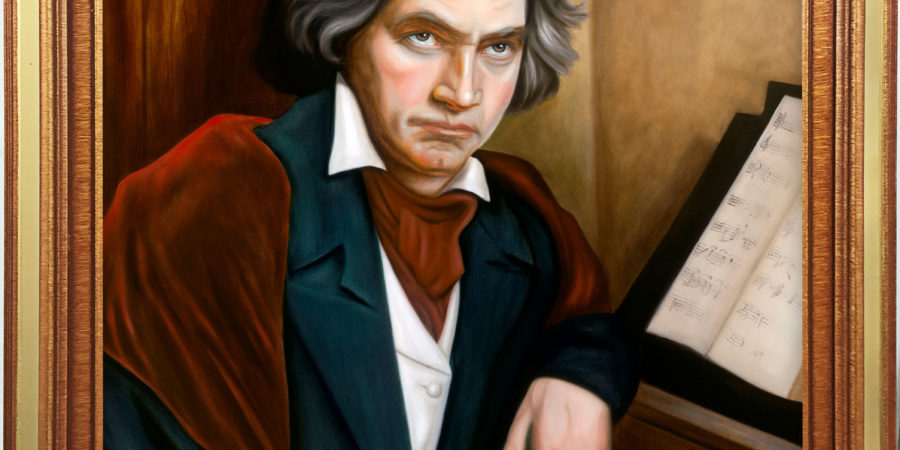Disclaimer: The views, suggestions, and opinions expressed here are the sole responsibility of the experts. No Pacific Daily journalist was involved in the writing and production of this article.
Mapping Music’s Bizarre History : At the point when Beethoven Got Booed

The progressives become the overwhelming focus in “Music: A Subversive History,” a major plunge into the under-investigated lives of the visionaries who twist the foundation toward their sound.
People state people need an upheaval? People prize performers for ability and appeal, yet it’s creativity—new methodologies, new instruments, new sounds—that put Bach, Beck, Bjork, and Beethoven on the guide. What’s more, it doesn’t generally turn out well toward the start.
The early audits of Beethoven were strongly negative. The primary audits of their Eroica orchestra, as Ted Gioia relates in their new book, Music: A Subversive History, were pointedly negative. One audience bugged it: “I’ll give another kreutzer if the thing will just stop!”
Haydn—the ace of the past age of arrangers—abhorred Beethoven. “The greatest living composer in Europe saw Beethoven as a volatile outsider whose impulses needed to be held in check,” Gioia writes, “an unpredictable upstart who ought to adapt to established ways of doing things.”
Progressives twisting the foundation toward their sound is a propensity of Gioia’s book, which handles music history from the Big Bang to Spotify. They plunked down with The Daily Beast to discuss it.
Would people be able to pinpoint when music was at the pinnacle of its impact in American culture? It is safe to say that people are in it?
On the off chance that people judge music by monetary measures, it arrived at its top around 1999. That was the moment that Americans spent the most cash on music. Then again, on the off chance that people assess a fine art by the quantity of individuals it utilizes, at that point the top for music occurred, thinking back to the ’30s and ’40s when there were in any event ten thousand ballrooms in the United States, the greater part of them highlighting enormous groups. Playing music in those days was an authentic vocation way for some individuals.
Be that as it may, they like to burrow further than both of these measures and attempt to discover the time when music had the most unavoidable effect of individuals’ everyday life. From that point of view, they would concentrate on the period directly before the spread of recorded music—somewhat more than a century prior. In those days, people couldn’t tune in to a collection or the radio, since they didn’t exist. Individuals needed to cause their own music—to make their own playlist, in a manner of speaking—and they did as such with enthusiasm and force.
What’s more, the music was more close to home than business?
Pretty much every family unit was a position of music-production back then. Pianos were all over—truth be told, there were hundreds (and possibly a great many) organizations that made instruments in the U.S. In the event that people didn’t have an instrument, people sang or welcomed a neighbor with melodic aptitudes to visit people. Furthermore, when individuals left their homes for night stimulation, they perpetually went to hear unrecorded music, which was found on pretty much every city square. Music was installed into everybody’s life to a degree people can scarcely understand these days.
Tchaikovsky and Stravinsky composed music for artful dance that is a piece of the symphonic ordinance today. Are film arrangers like Michael Giacchino and Ludwig Göransson finding that sort of acknowledgment?
Film music might be the most underestimated class. Truth be told, they once wanted to compose a book about motion picture soundtracks yet was directed away from the venture by a supervisor. The proofreader was presumably right—at any rate in making a decision about that there would be little interest for such a book. For reasons unknown, film scores don’t get a similar regard as traditional music or well known kinds, albeit a significant number of the best arrangers from the most recent hundred years worked in Hollywood.
Coincidentally, they do have a grievance about film arrangers. They accept they have become very unassuming and subservient. They tune in to many film soundtracks, and as time passes the score appears to withdraw more away from plain sight, making due with inconspicuous environmental impacts. John Williams is one of the remainder of the old school writers, those striking visionaries who rudely set the state of mind for a film scene. Time after time, these days, the arranger appears to react to the visual pictures instead of force an enthusiastic point of view on to them.
Rita Carvalio lives in London, Finchley. She was born in sierra leone and moved over here at the age of 7. She graduated in creative writing and web design and she has been working on Texas Times as writer. She believe in doing every things with a smile.
Related News

Haris Alexiou’s great singing odyssey reaches a end
Spread the loveOne of the most mainstream singers in Greece, Haris Alexiou reported that she’sRead More

The importance beyond the music : Songs at Kobe Bryant’s dedication
Spread the loveThe melodies played during Kobe Bryant’s tribute at the Staples Center had aRead More